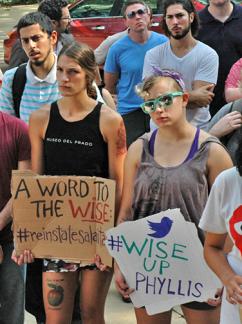Untangling the Steven Salaita Case
By now, the controversy over University of Illinois Chancellor Phyllis Wise's August 1, 2014 decision to terminate the faculty appointment of Professor Steven Salaita has gone viral. A multitude of opinions have poured forth from blogs, news stories, editorials, and protest letters. The debate brings into focus the continuing problem of efforts by adamantly pro-Israel groups to suppress campus protests [...]




